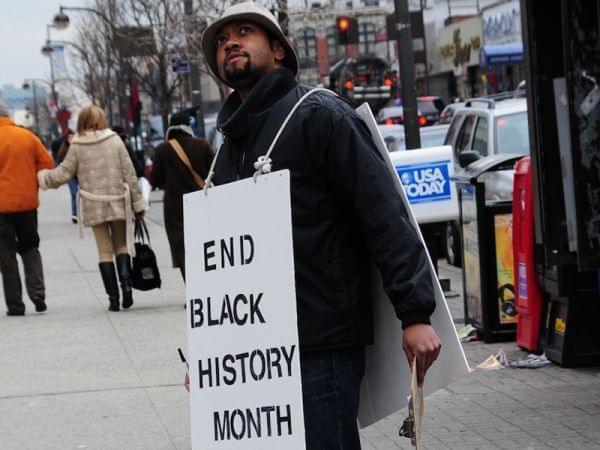Should Black History Month be ended?

Filmmaker Shukree Tilghman wearing a protest sign in Harlem. Antonio Caton
That’s the question explored by African American filmmaker Shukree Hassan Tilghman when he made the film More Than a Month, shown by Independent Lens on PBS and WILL-TV. The film takes the form of a road trip that begins in Washington, D.C., crisscrosses the country during Black History Month 2010, and ends with an epilogue one year later. Combining cinema verité, person-on-the-street interviews, and inspired dramatizations, the film is a first-person narrative of the filmmaker’s quest to understand the implications of Black History Month. More Than a Month tackles a question larger than why Black History Month exists; Tilghman wonders what it means that it still exists.
In the midst of February is an ideal time to talk about this topic in the classroom and at home, and we encourage teachers and parents to use the lesson plans, video clips and other resources from Independent Lens (made available to educators in Illinois and across the country through PBS LearningMedia) to examine what the treatment of history tells us about race and power in America. The accompanying Whose History educator guide can help deepen students’ understanding of the film. Explore questions of how different cultural groups are acknowledged in American history, media and culture: How do we justify teaching American history as somehow separate from African American history? What does it mean that we have a Black History Month? What would it mean if we didn’t?

